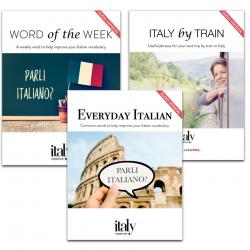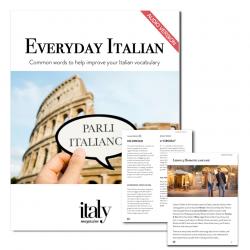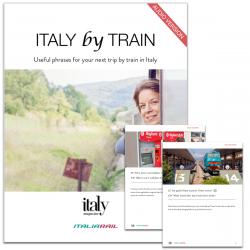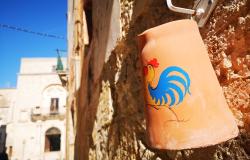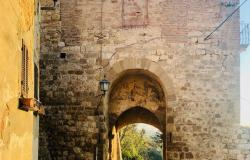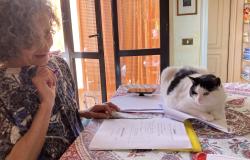Ferragosto in Italy: Origins and Traditions
ITA:
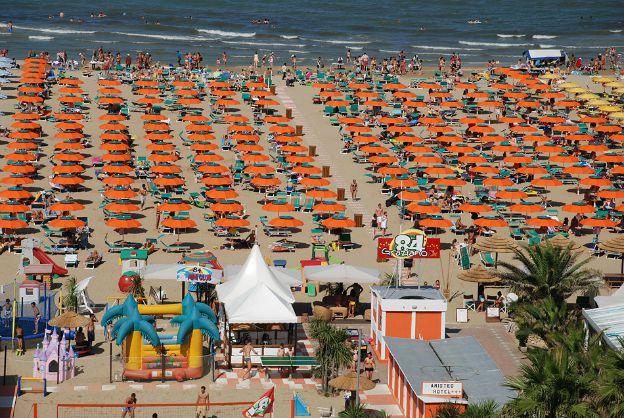
They call it ‘the small Venice’. Comacchio, a delightful little town 50 kilometers to the south-east of Ferrara, in the region of Emilia-Romagna, was built on 13 little islands crossed by canals and connected by bridges.
Its landmark monument is the Trepponti, a bridge built in the 17th century, consisting of five elegant staircases built at the confluence of five canals, and surmounted by two small towers; the bridge allowed for the waters of the internal canals to flow into the sea and, at the same time, it constituted a defense gate at the main entrance to town.
On the square opposite Trepponti is the Pescheria, which dates to the 17th century, and is still the seat of the fish market. In front of it, is the Ponte delle carceri (Bridge of Jails), built almost entirely in earthenware tile, with the prisons where smuggling fishermen were incarcerated.
When walking around the quiet little streets of Comacchio, don’t miss the 8th century Duomo and the annexed bell tower.
The Ospedale degli Infermi (Invalids’ Hospital) took care of the destitute sick in the past, and now houses, new this year, the Museo Delta Antico, which displays a collection of 2,000 finds from Protohistory to the Middle Ages.
Comacchio is one of the main centers in the Po Delta Regional Park, one of the most important wetland areas in Europe and the largest in Italy, and a Unesco World Heritage site. The Po Delta Park Visitor Center organizes guided tours to the Valleys of Comacchio, where travelers can see ancient practices of valley management, the fishing and marinating of eels and ‘acquardelle’, typical fishes of the area, and how smuggling fishing is contrasted.
La chiamano “la piccola Venezia”. Comacchio, una deliziosa cittadina 50 chilometri a sud-est di Ferrara, nella regione dell'Emilia-Romagna, fu costruita su 13 isolotti attraversati da canali e collegati da ponti.
Il suo monumento simbolo è il Trepponti, un ponte edificato nel XVII° secolo, composto da cinque eleganti scalinate costruite alla confluenza di cinque canali e sormontato da due torrette; il ponte consentiva alle acque dei canali interni di confluire verso il mare e, al tempo stesso, rappresentava un elemento di difesa all'ingresso principale della città.
Sulla piazza di fronte a Trepponti si trova la Pescheria, che risale al XVII° secolo, ed è ancora sede del mercato del pesce. Davanti a essa, vi è il Ponte delle carceri, costruito quasi interamente in cotto, e le prigioni, dove venivano incarcerati i pescatori di frodo.
Camminando per le tranquille stradine di Comacchio, da non perdere è il Duomo dell'VIII° secolo, con la torre campanaria al suo fianco.
L'Ospedale degli Infermi curava in passato gli ammalati indigenti e ora ospita, proprio da quest'anno, il Museo Delta Antico, dove si trovano in mostra 2000 reperti dalla Protostoria al Medioevo.
Comacchio è uno dei centri principali del Parco Regionale del Delta del Po, una delle zone umide più importanti d’Europa e la più grande d'Italia, patrimonio mondiale UNESCO. Il Centro Visita del Parco Del Delta del Po organizza visite guidate alle Valli di Comacchio, dove i viaggiatori possono assistere alle antiche pratiche di gestione della valle, alla pesca e marinatura delle anguille e acquardelle, pesci tipici della zona, e vedere come si contrasta la pesca di frodo.



